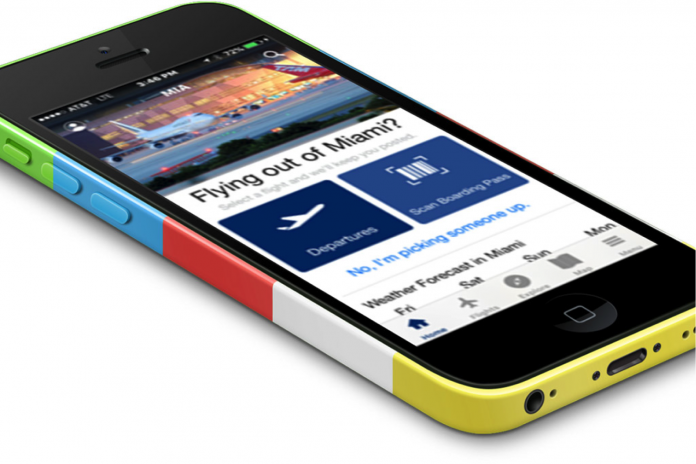By: Marisa Garcia
Miami International Airport has announced the launch of its new fully localized app tomorrow, intended to make finding the gate, shopping, and dining at the airport easier for visitors and locals alike.
Although there has been extensive talks of beacon technology at points of interest such as hotels and airports, Miami becomes one of the first places to put this technology directly into consumers’ hands — their smartphones, really. The app will capitalize on the investment Miami International Airport made installing a large network of more than 500 Bluetooth data beacons throughout terminals and at the airport’s various concessionaires.
![]() The upgraded app “MIA Airport Official 2.0” will function as a personalized travel assistant. Users will be able to scan boarding passes and receive turn-by-turn, blue-dot navigation guides to their gates which will include estimated walk times, real-time flight updates, even suggestions for nearby shopping and dining, based on a customizable personal profile.
The upgraded app “MIA Airport Official 2.0” will function as a personalized travel assistant. Users will be able to scan boarding passes and receive turn-by-turn, blue-dot navigation guides to their gates which will include estimated walk times, real-time flight updates, even suggestions for nearby shopping and dining, based on a customizable personal profile.
“The passenger experience at Miami Airport is our number one concern and iBeacon technology allows us make it even better,” said Maurice Jenkins, Division Director, Information Systems at Miami International Airport when the beacon installation plan was first introduced.
The release of ‘MIA Airport Official 2.0’ marks a leap forward for the industry in building and capitalizing on Internet of Things (IoT) infrastructure to improve the passenger experience.
![]() Miami International Airport is only one few airports in the world incorporating beacon technology with a mobile application. MIA has invested in a large-scale framework, using SITA’s open standard Common-Use Beacon Registry, which allows all the airport’s airline customers, airport retailers and passenger service providers an easy interface to connect their services.
Miami International Airport is only one few airports in the world incorporating beacon technology with a mobile application. MIA has invested in a large-scale framework, using SITA’s open standard Common-Use Beacon Registry, which allows all the airport’s airline customers, airport retailers and passenger service providers an easy interface to connect their services.
Industry Adoption
There has been some skepticism in the industry over whether Miami International Airport could put all those beacons to good use.
Some airports, like Copenhagen Airport, have trialled beacons and found there was more room to study their benefit before moving forward with a large scale installation. Others are mainly planning small-scale trials. American Airlines had previously announced trials of iBeacons at Dallas/Fort Worth’s Terminal D. Hong Kong International Airport has also trialled beacons for way-finding and the project is moving forward.
“These are the early days,” stated Jim Peters, Chief Technology Officer at SITA in a report for the air transport industry on IoT travel personalization, “but with the IoT becoming a reality, we can look forward to a game-changing and real-time revolution in the way we do things.”

























